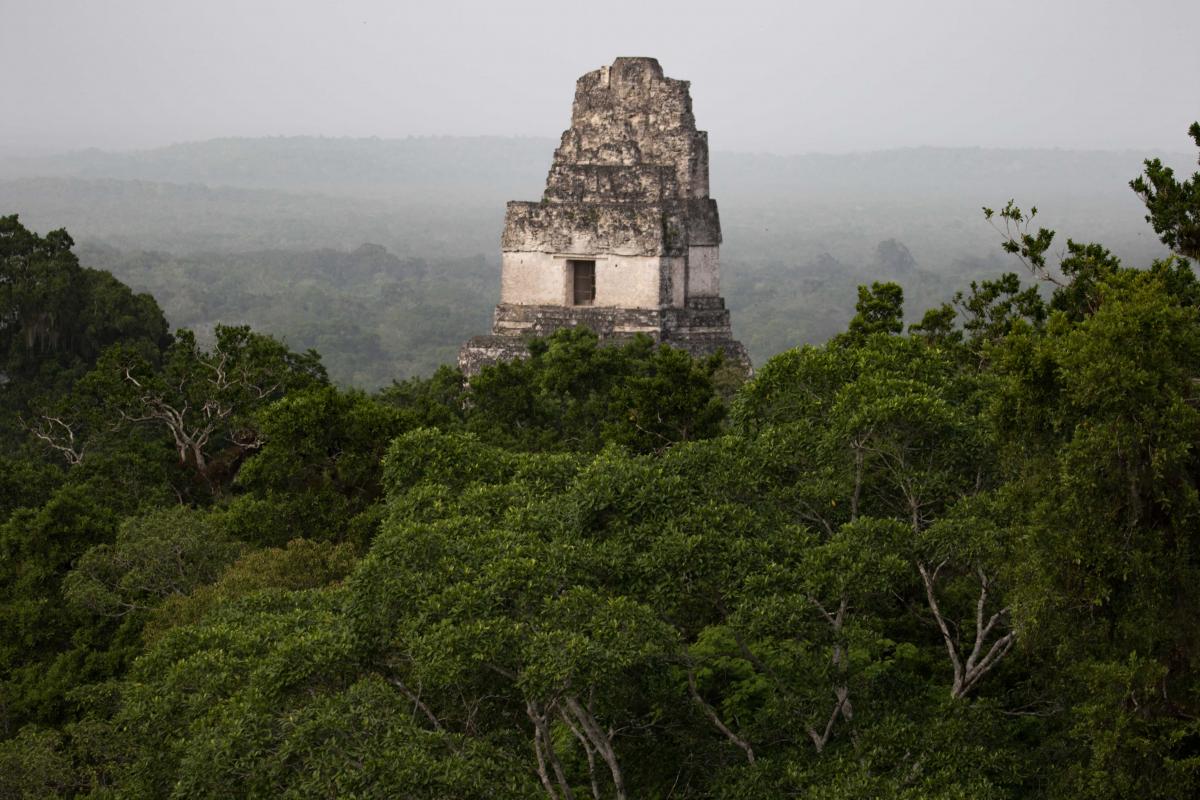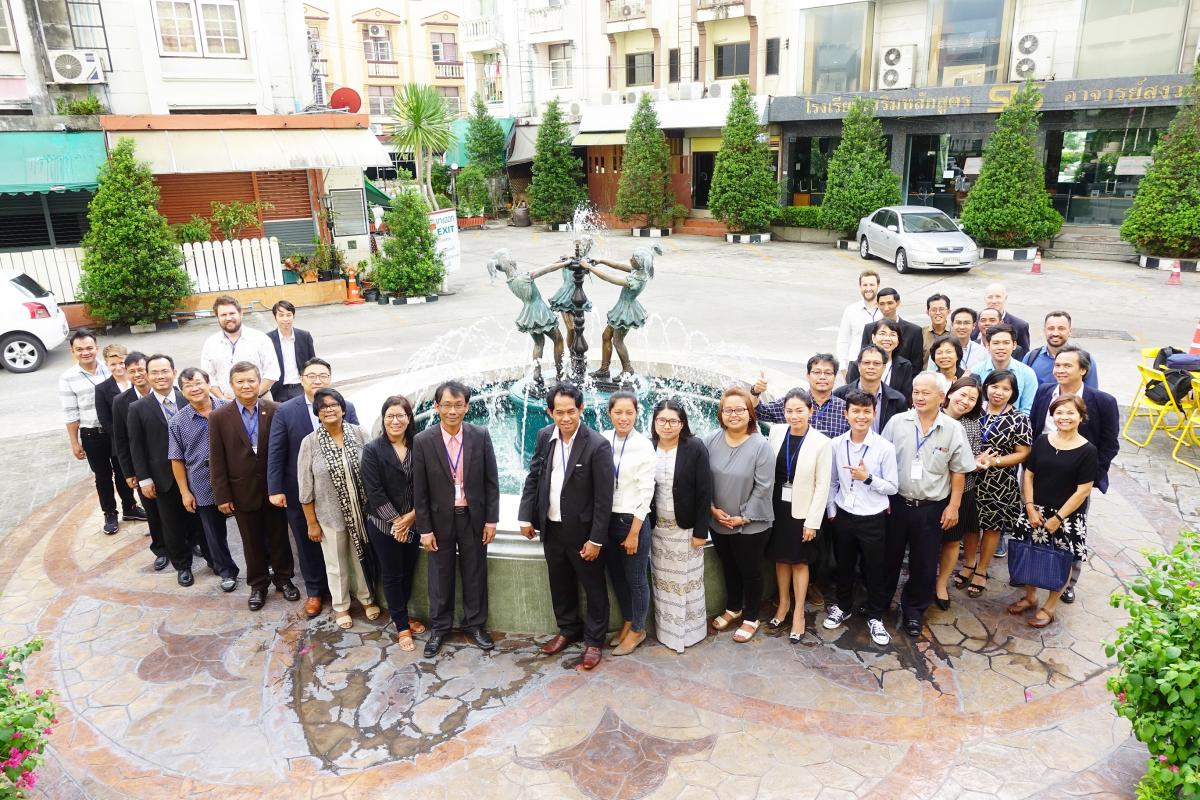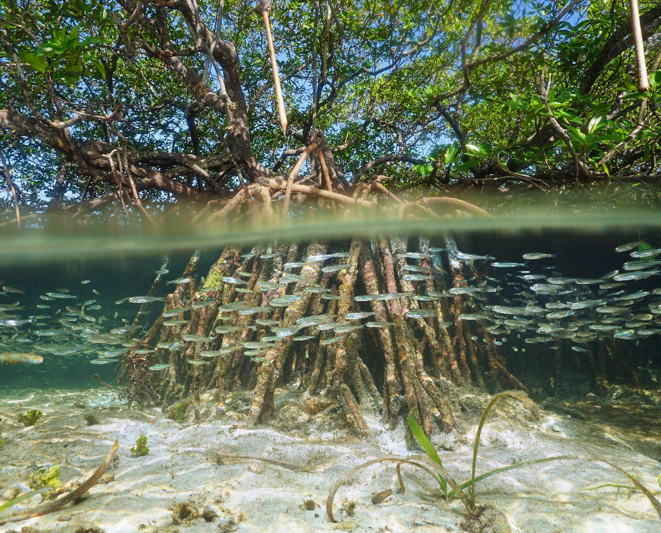Informing the global standard for Nature-based Solutions
At the 2016 World Conservation Congress and members’ assembly, IUCN's members adopted a resolution (WCC-2016-Res-069-EN) which, for the first time, defined the use of nature for simultaneous benefits to biodiversity and societal well-being. According to the resolution, Nature-based Solutions (NbS) are “actions to protect, sustainably manage and restore natural or modified ecosystems that address societal challenges effectively and adaptively, simultaneously providing human well-being and biodiversity benefits”. This definition is drawn from a more elaborated IUCN publication that outlines the NbS framework (Cohen-Sacham, 2016).
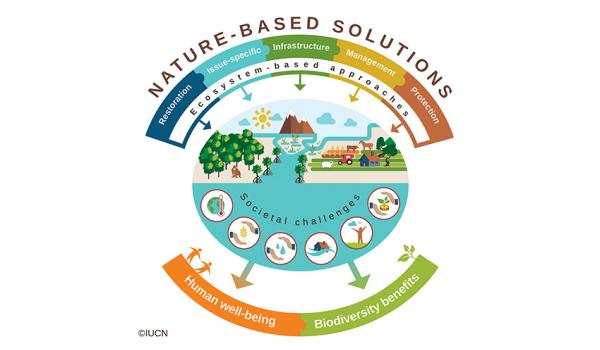
Conceptual framework on Nature-based Solutions
Photo: IUCN
Why a Global Standard is needed?
Without clear definition and benchmarks that enable effective transfer of NbS approaches from pilot or project scales to significantly larger scales, there is a risk that NbS remain a general metaphor. While NbS hold real potential, the absence of comprehensive guidance may promote ill-considered interventions which subsequently fail to deliver. This then further exposes the very communities they are designed to benefit and undermines government and investor confidence in NbS.
Currently, there is a rapidly growing evidence base on the positive effects of NbS. With robust standards and guidelines, further momentum can be achieved in engaging relevant sectors such as water, food, development and humanitarian aid to systematically incorporate NbS into their decision-making processes.
To ensure the uptake of NbS to societal challenges, the Ecosystem Management Programme and Commission are jointly leading the collaborative process of elaborating a Global Standard for the Design and Verification of Nature-based Solutions.
A standard aiming to create a common understanding and consensus on what constitutes a good NbS. It is intended to be a simple yet robust hands-on tool that informs the planning, design and implementation of an NbS, especially as an alternative to other types of development interventions such as hard infrastructure.
Together with a verification tool we are yet to develop, the standard will help determine whether and to what degree a project can be considered an NbS, in accordance with the IUCN Resolution and the IUCN framework. It will also allow assessing the efficiency, effectiveness and sustainability of an NbS and point to areas that need correction or can be improved.
To achieve this, we invite all practitioners, users and people interested in NbS to be part of this participatory process. We need your inputs, suggestions, experiences and knowledge to build a standard for all with the ultimate aim of conserving nature and addressing societal needs.
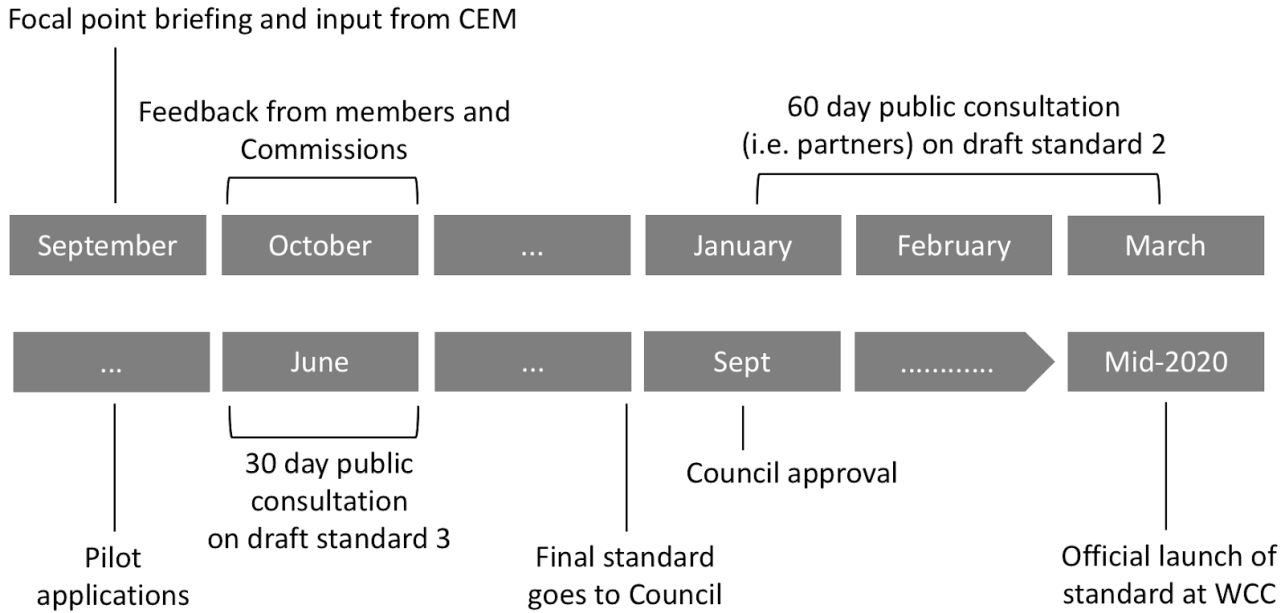 Photo: IUCN
Photo: IUCN
The first public consultation will run from Monday 28 January and will last 60 days. If you would like to be involved, please take a moment of your time to fill out this survey, which will also help us to better understand and integrate your needs and concerns.
You can also be engaged through your projects by pilot testing the NbS Standard thus allowing you to verify and test your project approach, determine whether problems exist that need to be addressed. The pilot testing phase starts mid-2019; for this and any other queries please get in touch via nbsstandard@iucn.org.
